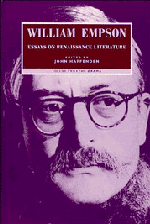Book contents
7 - ‘Mine eyes dazzle’
Published online by Cambridge University Press: 03 February 2010
Summary
(CLIFFORD LEECH, WEBSTER: THE DUCHESS OF MALFI, 1963)
This handbook by Professor Clifford Leech on The Duchess of Malfi is scholarly and up-to-date, and also betrays a certain delicacy of feeling. As he is strictly bound by our ridiculous fashion, he has to argue that the author and the first audiences were jeering at the Duchess for her carnal lust, and the book gives the horrid little ‘proofs’ of it, but one feels that he dislikes the duty and mitigates it so far as he can.
Since this view of the duchess cannot be presented on the stage, because an audience rejects it, the academic critics can give no help to the dramatic producers, so the dramatic critics, when the play is revived, usually praise the production for guying the sensationalism of the Elizabethans. There is a bit of tradition behind this idea, so that it gives a useful hint; the trouble about having learned the neo-Christian tradition, on the other hand, is that it cuts you off from any real tradition. Webster may sensibly be regarded as a precursor of Monk Lewis and Mrs Radcliffe, and what they are being ‘sensational’ about was the wickedness of Roman Catholic southern Europeans. Neo-Christian critics have to pretend that everybody has always been an Anglo-Catholic, so they have no idea of what the play meant to its first audiences.
We are commonly told that Webster and Tourneur, with their characters like ‘coiling asps’ (Mermaid edition), were describing the harm often done by loss of religious faith to the Londoners around them.
- Type
- Chapter
- Information
- William Empson: Essays on Renaissance Literature , pp. 110 - 115Publisher: Cambridge University PressPrint publication year: 1994
- 1
- Cited by



